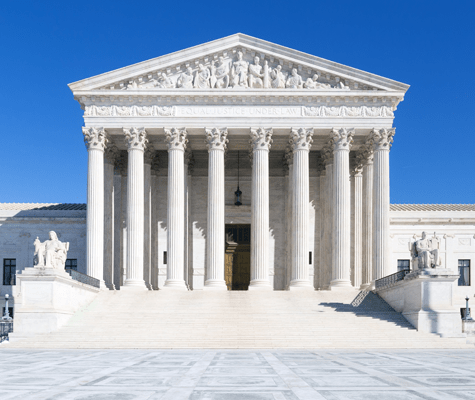
Court will review Third Circuit’s ruling that PennEast cannot seize state-owned property for its pipeline project.
The U.S. Supreme Court today granted PennEast Pipeline’s petition to review a Third Circuit Court of Appeals decision finding that PennEast, as a private company, lacks legal authority to seize or condemn state-owned lands without the state’s consent.
The Court’s move means that it will hear arguments in the case and render a decision about whether the Third Circuit’s result will stand. The fossil gas pipeline proposal would condemn more than 40 properties preserved by the state, crossing the Delaware River and more than 4,300 acres of protected land in New Jersey. The unnecessary pipeline would threaten significant natural and historic resources while damaging scores of pristine, protected streams and jeopardizing populations of threatened and endangered species. New Jersey Attorney General Gurbir Grewal has made a strong argument for why the Supreme Court should not overturn the Third Circuit.
“The Third Circuit’s decision to halt taking of state-owned land by a private party in federal court was well-reasoned. It’s a position that should be upheld by the Supreme Court,” said Tom Gilbert, campaign director, New Jersey Conservation Foundation and ReThink Energy NJ. “The PennEast pipeline would threaten the health and safety of our communities, private landowners, taxpayer-preserved open space, our drinking water, and significant natural and historic resources. We remain committed to working with our allies in the community to stop this unneeded pipeline and will be following the Supreme Court’s deliberations closely.”
“The Third Circuit honored New Jersey’s sovereign right to protect its conservation lands from a private gas pipeline company — a right that is based on a substantial body of Supreme Court precedent spanning over one hundred years. We believe that the Court will reach that same conclusion,” said Jennifer Danis, senior fellow at Columbia University Law School’s Sabin Center for Climate Change Law.